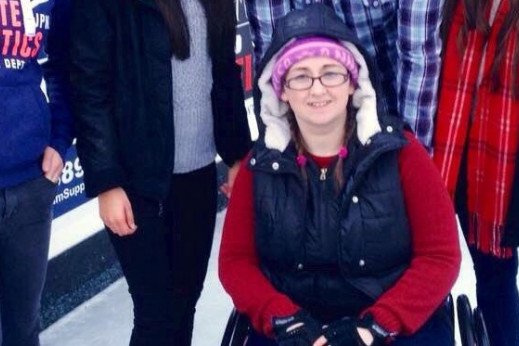At the age of 17 a young man should be active, studying, playing video games and enjoying life. At 17 men, should be dating and sneaking into night clubs; they might even have a job.
But for me as a 17-year-old man my life did not reflect this. “You’re not allowed to have fun! You have to work.” At 17 Perfection was my only friend. Perfection kept me safe; it made sure I was right.
At 17 I existed, I was a cyborg-zombie living under perfection’s strict regime.
Perfection told me I had to be the best normal. It told me how to live, it gave me a routine, a purpose. I believed that if I followed this routine I would be safe; if I followed perfection I would be right. This routine consumed me. “Work harder! Be better!” Any deviation from perfection’s rigid clutches resulted in self-punishment and loathing.
At 17 I was paralysed with fear, fear of not being right. I needed to hide, fade into the background. If nobody saw me, then nobody would see me when I failed to live up to perfection.
You look cold. You look thin. You look ill. Everyone saw perfection’s effect on me. Everyone could see I was dying, but nobody knew what was wrong.
“Eating disorders are for girls, young girls who want to be models.”
“Men don’t get eating disorders.”
“Eating disorders are a phase, for attention seekers and people who are trying to copy celebrities.”
These are some of the eating disorder lies, myths and stereotypes that prevented me from getting the early help I needed to live as a normal 17-year-old man.
He might have the flu. He must be stressed. There must be some sort of physical illness that means he’s losing weight. No one thought that my weight loss and controlling behaviours could be an eating disorder.
I just want to be right. At 17 I was unable to walk down the street, unable to enter shops, unable to do anything that wasn’t dictated by my routine. And still I believed I was wrong; I wasn’t working hard enough; I was not right enough. I needed to try harder, be better. I was a cyborg zombie shuffling through a fading existence.
FLASH! Is the only way to describe how my life was saved from anorexia. The luck of the devils, sheer chance and my persistent parents. It all happened so fast: blood test one day, diagnosed with anorexia and living through a tube in hospital the next.
At this point I couldn’t do anything without thousands of guns going off in my head: “YOU DID THAT WRONG!” – (Perfection telling me how wrong I was).
Perfection’s routine was so ingrained that I had to be ejected from my life and thrust into an alien world of medicine, therapy and 24/7 monitoring.
At 17 I was living on an inpatient unit. Not a cyborg zombie, but an anorexic man who was striving for recovery.
The myths of eating disorders are stopping people getting help. These myths are making people more ill and in my case these myths destroyed my 17-year-old life.
Eating disorders are serious mental illnesses. There not just about food and wanting to be skinny. Food and weigh control are symptoms of a deeper mental illness. Anyone can develop an eating disorder. 25% of people diagnosed with anorexia are male!
The best way to stop an eating disorder taking hold and turning someone in to a cyborg zombie it to intervene early. If you’re worried about someone, talk to them, highlight your concerns. Don’t be surprised if they scream or cry.
The best advice I can give to someone who’s worried about a friend or family member with an eating disorder is to let them know you’re there. You don’t have to be there every day – just knowing someone cared about me motivated me to recover.
I hope by sharing my experiences, some of the myths and stereotypes associated with eating disorders will be broken, meaning more people are able to get the early help they need, and go on to live their lives in the best possible way.
I was an anorexic cyborg zombie, but now I’m just Toby and living with recovery.
Contributed by Toby
Eating disorders take many different forms, and anyone can have one, regardless of gender, age, ethnicity, sexuality, class, ability, or any other aspect of identity. Yet these things can have an impact on the way someone's eating disorder develops and on their ability to seek and receive help. Have you got a story about how stereotypes and expectations around eating disorders have affected you? If so, please get in touch at comms@beateatingdisorders.org.uk
What really triggered my eating disorder
28 February 2019I needed to find some way to disappear and become inconsequential, as if I did society maybe wouldn’t notice the disability. The eating disorder was the only way I could see to do this.
My Sock It Tour Of London: Recovery is Always Possible
5 February 2018There I was, sitting in front of the GP, age going on 33, a decade of anorexia behind me. Was I going to tell the whole story? 'I’ve had a chest infection for six weeks and I’m scared I’m losing my hearing. Pause. Deep breath. “The real reason I’m so ill is anorexia. I’ve got anorexia.'
What happens when you start to feed your brain again?
5 May 2021You have to learn how to live again and, like with any lessons, you often have to fail to learn the best way or the right way...

